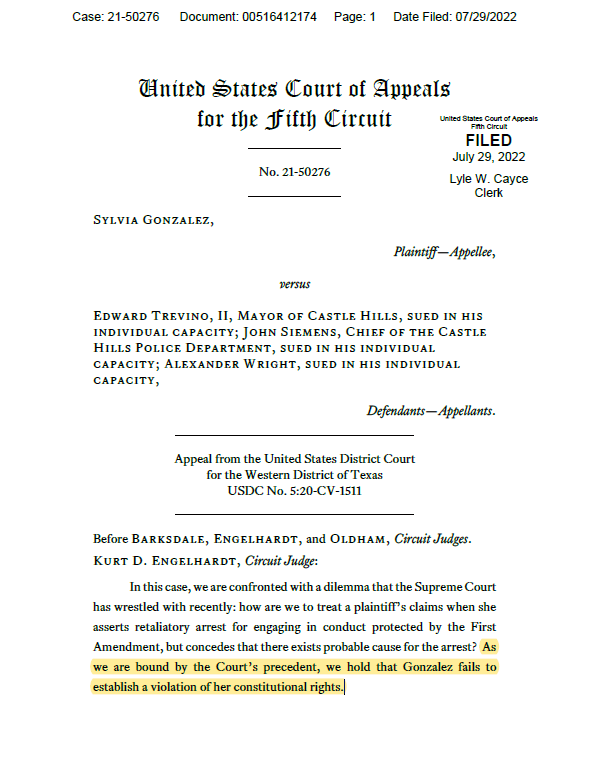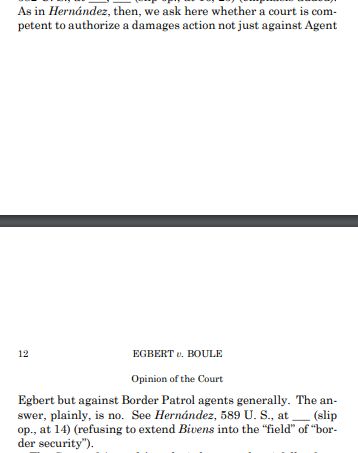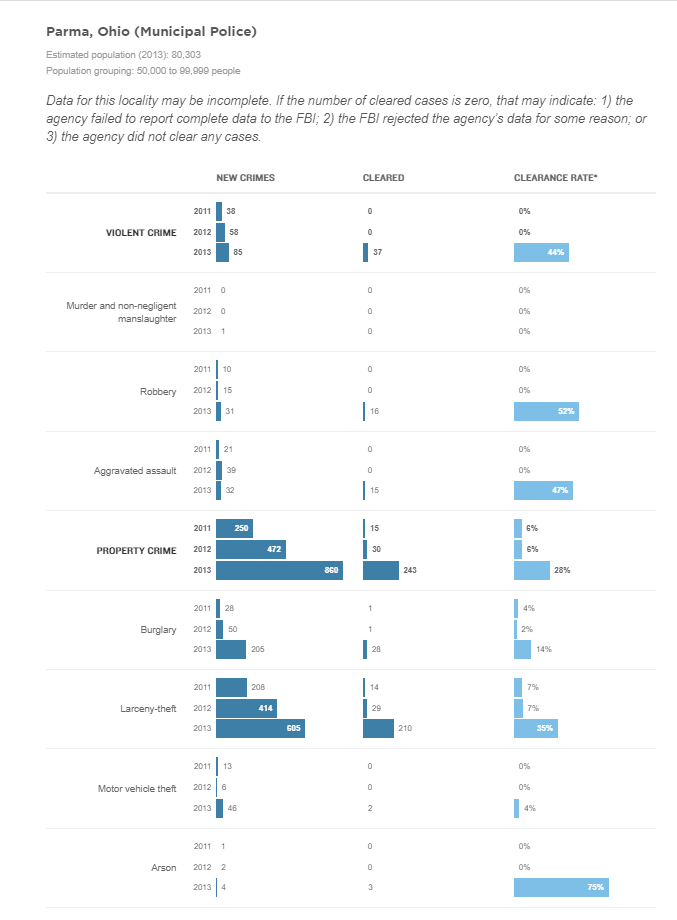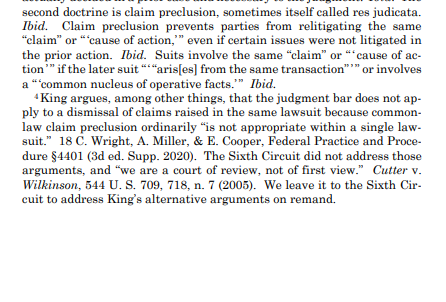
🚨Excited to share that @TheOnion has filed the best amicus brief I've ever read in favor of @IJ's cert petition in Novak v. Parma. Novak challenges the 6th Cir's use of #QualifiedImmunity to deny #FreeSpeech protections to a parodist. 1/ @SCOTUSblog
supremecourt.gov/search.aspx?fi…

supremecourt.gov/search.aspx?fi…


This is the Onion's first amicus brief, and it does a perfect job of showing and telling why parody (like the Facebook posts Anthony Novak published lampooning his local police) is a core #FirstAmendment tool. Anthony was arrested for it. Now the Onion stands with him: 2/ 



Much more (less funny) information on @IJ and Anthony's case here: 3/
https://twitter.com/pjaicomo/status/1574767029319598080?s=20&t=T68vZ1Cg-HB2hKPrNGkrzg
And a video of Anthony telling his story in his own words here: /END
And here's the cert petition for those who don't want to click through above and are interested in the #FirstAmendment and #QualifiedImmunity issues @TheOnion is supporting as amicus:
supremecourt.gov/DocketPDF/22/2…

supremecourt.gov/DocketPDF/22/2…
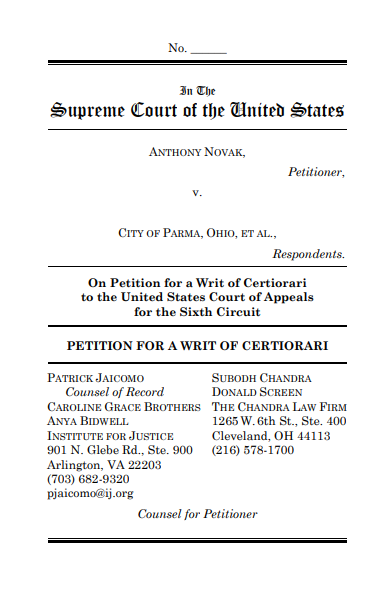

If @LastWeekTonight wants to talk about Anthony's case, challenging his arrest for parody in the Supreme Court, or The Onion's incredible amicus supporting @IJ's petition asking SCOTUS to hear it, my DMs are open.
• • •
Missing some Tweet in this thread? You can try to
force a refresh


